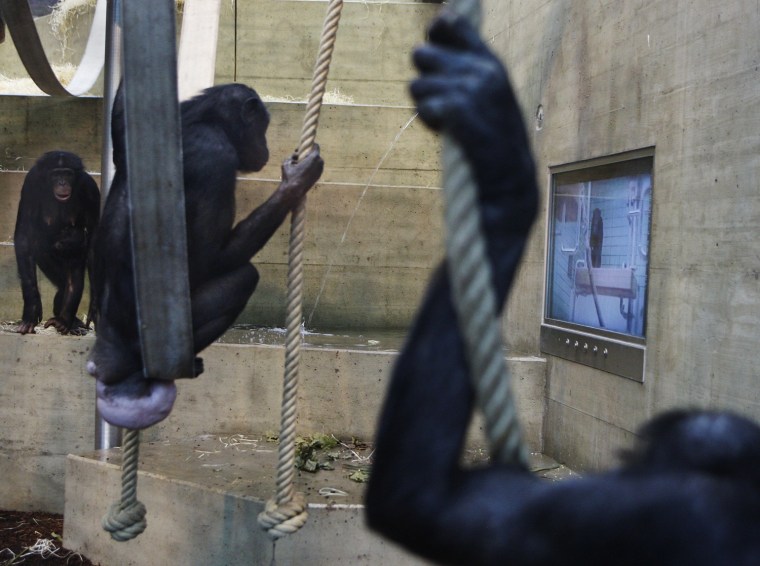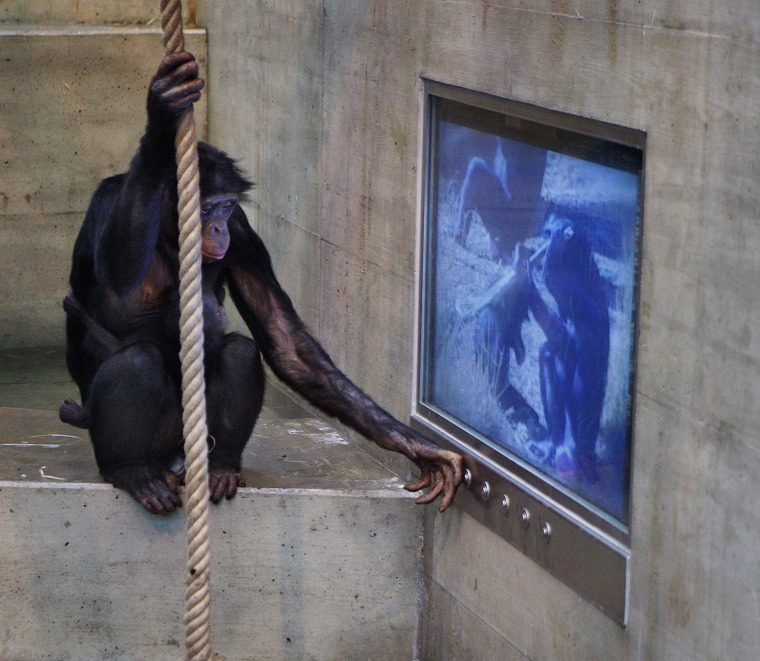MAINZ, Germany – Bonobo apes living in a zoo in southern Germany now have a flat screen TV for entertainment – and a group of scientists monitoring what they watch.
"With the new TV set, we wanted to provide some change and a new play tool, but at the same time, hope to study the behavior of this species a little more," said Karin Herczog, spokeswoman for the Wilhelma Zoo in Stuttgart.
The zoo opened a new state-of -the-art ape house in May, where gorillas and bonobos can roam more than 47,000 square feet of outdoor areas and indoor ape enclosures – 13 times the size of their previous home.
The compound includes ape showers, paddling pools, hammocks, swings, a labyrinth.
Now, it also has a "Bonobo Cinema” that zookeepers and scientists have been training the apes to use.
"Now, the apes have the possibility to choose what they want to watch by pushing buttons below the screen," Herczog said. "Whenever they want, they can select between five different programs."

The films are five to seven minutes long and depict typical scenes from the animal kingdom: the search for food, turbulent play scenes, aggressive Bonobo behavior and general images of life in the wild, taken from an educational documentary originally produced for children in the Congo.
While “Planet of the Apes” is not included the selection, one of the five movies shows explicit ape sex scenes. But so far, the images of copulating apes has not “turned on” any of the 15 members of the group.
"Maybe they are not so interested, as Bonobo apes very often have sex anyway. Mating not only plays a role for reproduction or pleasure, but also fulfills an important social function for the animals," Herczog said.
In the past two weeks, only Banbo, a 15-year-old Bonobo ape has been spotted pushing one of the buttons repeatedly, curiously waiting for some kind of dramatic effect.
"When the film started, Banbo and some other apes in the group moved away and watched for a while from a distance, but so far there was little reaction," said Christin Zeltner, a zookeeper at the ape house.
Yet, when food was offered to the hairy viewers, the group went bananas, Zeltner said.
"When we threw popcorn into the enclosure, the Bonobos immediately ignored the television program and went for one of their favorite meals," she added.
A webcam has been installed in the enclosure to regularly monitor the animal behavior as part of the scientific study.
In the coming months, the project leaders, behavioral scientist Amy Randall Parish from San Diego, Calif. and the deputy director of the zoo, Marianne Holtkoetter, are hoping to learn whether the animals choose specific films or possibly show emotions while watching TV.
A first analysis of the results is expected to be presented in March.
